Eating more fruits in middle age can stave off depression later in life, Singapore study finds
A recent Singapore study on over 13,000 participants says so but you’ll have to eat three servings of fruits a day.

(Photo: iStock/kupicoo)

This audio is generated by an AI tool.
There is merit, after all, from all those times when you fought the temptation to get a chocolate lava cake for dessert and got yourself a fruit instead: You could be reducing your risk of depression later in life. That was what a local study, which traced more than 13,000 Singaporeans for close to 20 years, found when middle-agers (40 to 65 years old) consumed more fruits.
But you’ll have to choose fruits very often. “Participants who had at least three servings of fruits a day, compared to those with less than one serving a day, were able to reduce the likelihood of ageing-related depression significantly by at least 21 per cent,” said Professor Koh Woon Puay from the Healthy Longevity Translational Research Programme at NUS Yong Loo Lin School of Medicine, and the principal investigator of the study. “This can be achieved by eating one to two servings of fruits after every meal.”
The results, published in June’s edition of The Journal Of Nutrition, Health And Aging, looked at a total of 14 fruits that are commonly eaten in Singapore. It found that the ones that were associated with a reduced likelihood of depression were oranges, tangerines, bananas, papayas, watermelons, apple and honey melon.
Interestingly, eating more vegetables did not appear to confer any benefits on reducing depression risk after looking at a total of 25 vegetable, including spinach, broccoli, watercress, carrots, tomatoes and shiitake mushrooms.
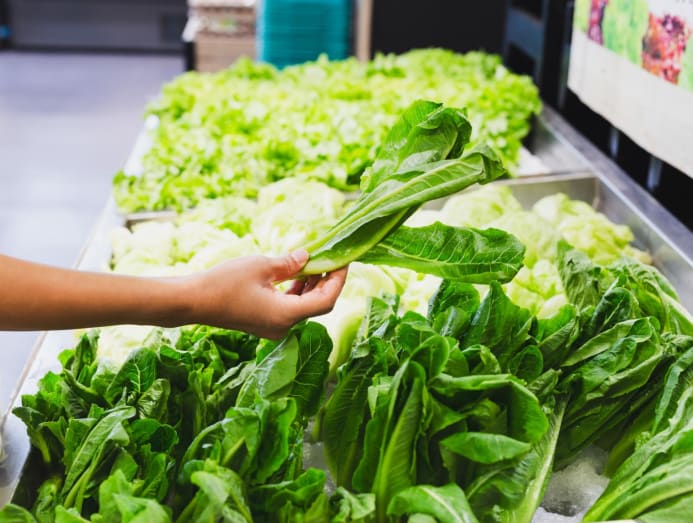
“Although other studies have also examined the associations of fruits and vegetables with risk of depression, there are inconsistencies in the results, and many of them were done in western populations,” said Prof Koh. “To our best knowledge, ours is the largest population-based study in an Asian population to study this association.”
Indeed, the study’s cohort was drawn from 63,257 Chinese in Singapore, who originally participated in the Singapore Chinese Health Study from 1993 to 1998. The reason for the specific racial profile then was to investigate cancers that were much more common among the Chinese than the other races in Singapore.
“Even though we’ve only recruited Chinese in this cohort, we have no biological reason to think that the risk factors that we have discovered to be associated with the outcomes should only be applicable to Chinese,” said Prof Koh.
What does it all mean if you’re in your 40s and want to keep depression at bay? We find out more from the experts.
HOW IS DEPRESSION DIFFERENT IN MIDDLE-AGED INDIVIDUALS IN THE FIRST PLACE?
Depression is, no doubt, a widespread mental health issue in Singapore, regardless of age. “Recent studies indicate that about one in 16 Singaporeans have experienced depression at some point in their lives,” said Dr Lim Boon Leng, a psychiatrist at Gleneagles Hospital’s Dr BL Lim Centre For Psychological Wellness. At his clinic, middle-agers make up about 40 per cent of patients with depression.

Middle age is when signs of chronic illnesses such as hypertension, diabetes and cardiovascular diseases start to creep into your health report. In fact, Prof Koh and her team wrote that older adults often have to grapple with chronic diseases and “these conditions may, in turn, increase the severity of depression”.
“The physiological changes associated with chronic diseases, including inflammation and alterations in brain chemistry, can directly contribute to the development of depression,” said Dr Lim. “Also, chronic illnesses often involve significant lifestyle changes and limitations, which can lead to social isolation and a decrease in the quality of life.
“They may have difficulty adhering to treatment regimens due to depressive symptoms like a lack of motivation and fatigue. Additionally, the physical limitations imposed by chronic illnesses can exacerbate feelings of helplessness and depression, creating a challenging cycle to break,” said Dr Lim.
HOW DO THE MICRONUTRIENTS IN FRUITS AFFECT DEPRESSION?
The answer is still not known, said Prof Koh, but it could be linked to the neurodegeneration of the brain. Among the numerous pathways that neurodegeneration can take place, “oxidative stress and subsequent neuroinflammation are the two well-established pathways”, she said.
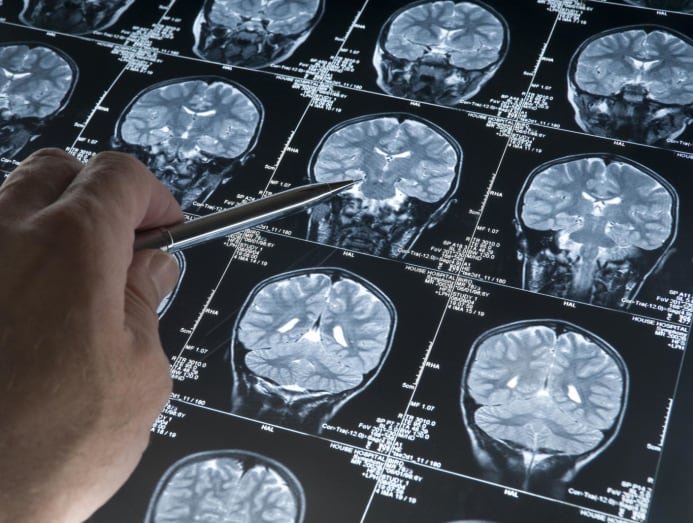
Prof Koh added: “Fruits generally contain high levels of antioxidants and anti-inflammatory micronutrients, such as Vitamin C, carotenoids and flavonoids, and these nutrients have been shown to reduce oxidative stress and inhibit inflammatory process in the body”.
Dietitian Jaclyn Reutens from Aptima Nutrition agreed. “Oxidative stress is an imbalance between antioxidants and free radicals” and is “correlated with imbalances in the stress response, inflammation of the nervous tissue, serotonin production as well as the growth and development of nervous tissue. These factors promote the onset and development of depression”.
“Therefore, counteracting the harmful effects of oxidative stress using powerful antioxidants such as Vitamin C, carotenoids and flavonoids could be a promising strategy for the treatment of depression,” said Reutens.
IS IT TOO LATE TO START EATING MORE FRUITS NOW?
It is never too late, said Reutens. “Three in four Singaporeans do not meet their recommended fruit intake. The mechanism of action is to reduce oxidative stress, so eating more fruits would help to prevent further damage.”
Besides, fruits are not only for fighting depression. “They are beneficial for reducing risks of some chronic diseases such as heart disease, stroke, diabetes and some cancers,” she said.
THE STUDY’S PARTICIPANTS ATE AT LEAST THREE SERVINGS OF FRUITS A DAY. BUT HEALTH GUIDELINES SAY TO EAT TWO SERVINGS A DAY. WHICH DO WE FOLLOW?
The current dietary recommendations are based on reducing cardiovascular disease, cancers and other illnesses, and not specifically depression, according to Reutens.
“Fruits, on the other hand, had a significant impact when it was increased to three servings day. Based on that, I would recommend an extra serving to potentially reduce symptoms of depression," she said.
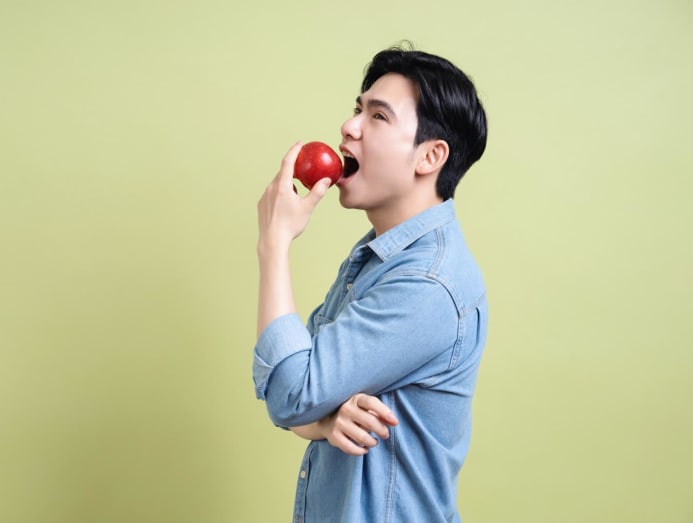
BUT ISN’T EATING MORE FRUITS BAD BECAUSE OF THE HIGHER INTAKE OF NATURAL SUGARS?
Prof Koh’s study mentioned previous research that showed foods with high glycaemic index were risk factors for depression, due to their role in inducing inflammation.
The good news is, the Singapore study’s “results suggested that the antioxidants (carotenoids, Vitamin C and flavonoids) in high-glycaemic index fruits could offset the deleterious effects of refined sugars in these fruits on the pathogenesis of depression”. Nevertheless, “these findings need to be further validated in other large-scale prospective cohort studies”, they wrote.
Reutens added that “until more studies are conducted using higher servings of fruits, we should be prudent in advocating a consumption higher than three servings a day”. In the meantime, here are her fruit suggestions to maximise your nutrient intake:
- Orange: Vitamin C and carotenoids
- Kiwi: Vitamin C and polyphenols
- Apple: Quercetin (flavonoid), soluble and insoluble fibre
- Banana: Potassium, catechins (flavonoid) and tryptophan that stimulates serotonin production
- Blueberries: Anthocyanins (flavonoid)
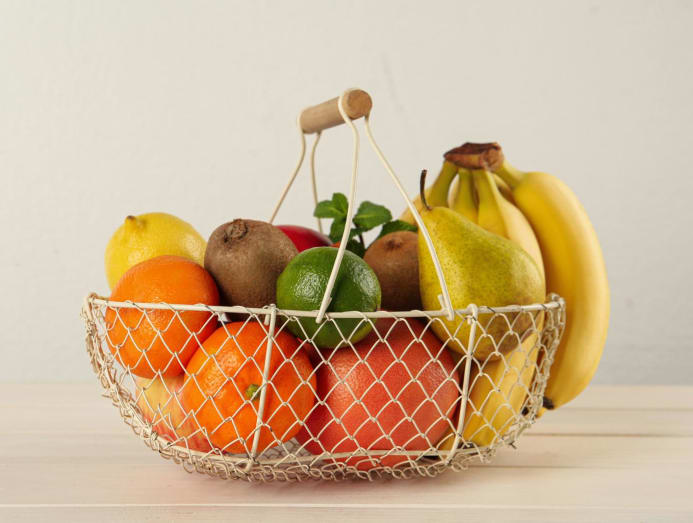
DO ONLY FRESH FRUITS COUNT? WHAT ABOUT JUICES AND FROZEN FRUITS?
“Juices tend to lose Vitamin C due to the exposure to air,” said Reutens. “Carotenoids and flavonoids tend to be more stable, so there’s still nutritional value in juices. Get the fibre in, if you can. Fruit juices are still way better than a soft drink.”
As for cut versus frozen versus canned fruit, these varieties still retain the dietary fibre, potassium, and other vitamins and minerals, said Reutens, and certainly better than supplements “because the bioavailability is the highest from natural sources”.
“Supplements as the name suggest, are just to top up," said Reutens.
HOW LONG CAN CUT FRUIT RETAIN THEIR NUTRIENTS FOR?
According to Reutens, there are three factors that increase nutrient loss: Oxygen, heat and light.
“After you cut your fruits, store them in an airtight container or sealed plastic bag and put them in the fridge. They can last three to five days,” she said.
Also, try and keep the skin intact for fruits such as apples and pears, for better nutrient preservation. “Watery fruits like watermelon will have a shorter shelf life due to a higher moisture content that promotes bacterial growth,” she said.
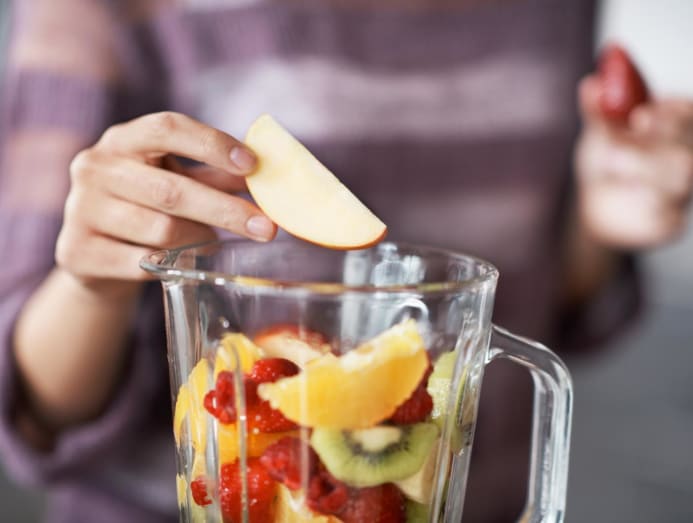
WHEN IS THE BEST TIME TO EAT FRUITS?
Thank your mother for always serving the fam cut fruits after dinner. As it turns out, fruits eaten immediately after a meal is the best way to absorb those phytonutrients.
“A well-balanced meal will contain healthy fats and oils that will enhance fat-soluble nutrients such as carotene to be better absorbed by the body,” said Reutens. “Also, iron absorption is enhanced when Vitamin C is present.”
If it is not convenient to get fruits with meals, eating them as a snack is also great, she said.
WHY DON’T VEGETABLES MAKE THAT MUCH OF AN IMPACT ON DEPRESSION?
Although vegetables are also rich sources of micronutrients, they are often prepared and consumed in different ways from fruits, wrote Prof Koh and her team.
“Fruits are typically eaten raw as snacks throughout the day, whereas vegetables are usually cooked for meals. Cooking is known to be a process which may change the bioavailability and activity of nutrients in vegetables, and thereby limit the protective effects of these nutrients on depression.”
To get the most out of your greens, Reutens advised to eat a mixture of cooked and raw vegetables.
If you’re cooking kailan, for instance, do a “quick stir-fry with a small amount of oil to gently heat the vegetables and break down some of the fibres for easier digestion”, she said. “Also, some heat allows phytochemicals such as lycopene and beta-carotene to be more bioavailable to the body.”








